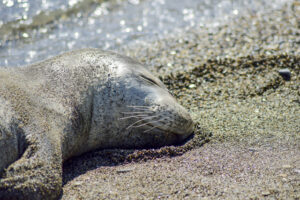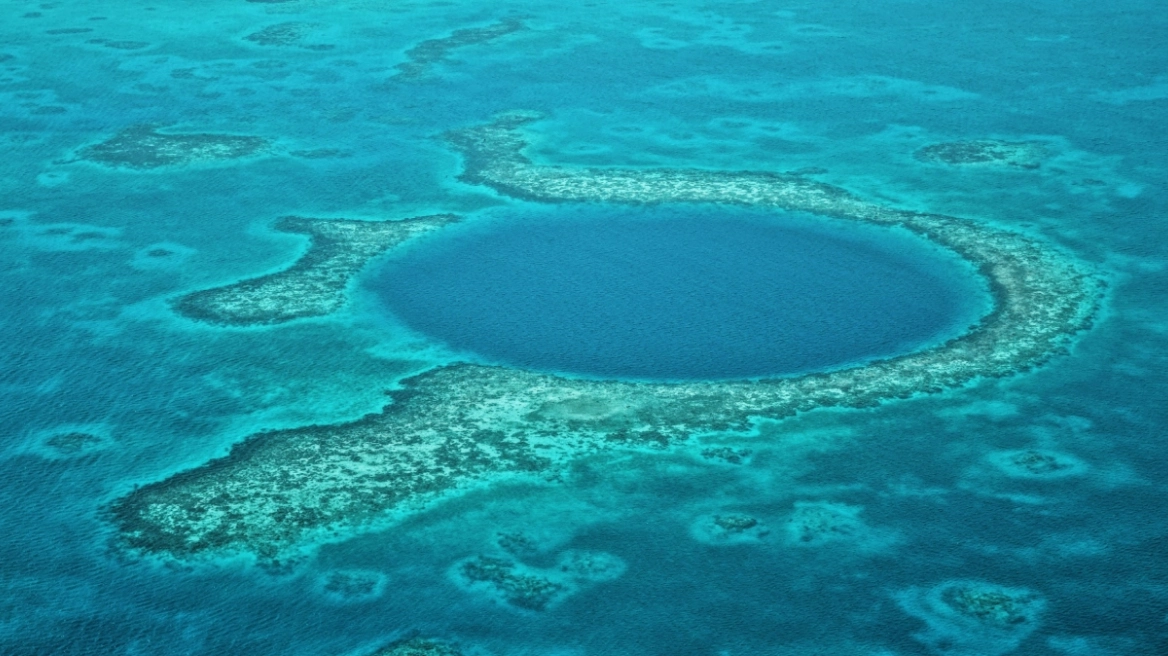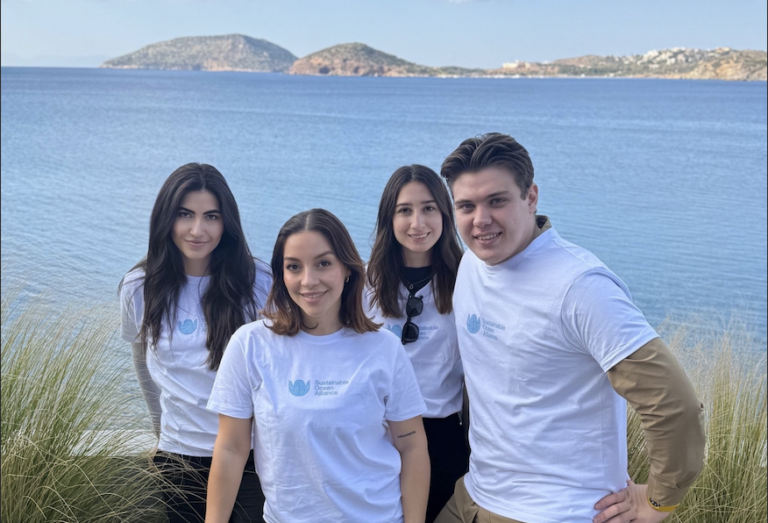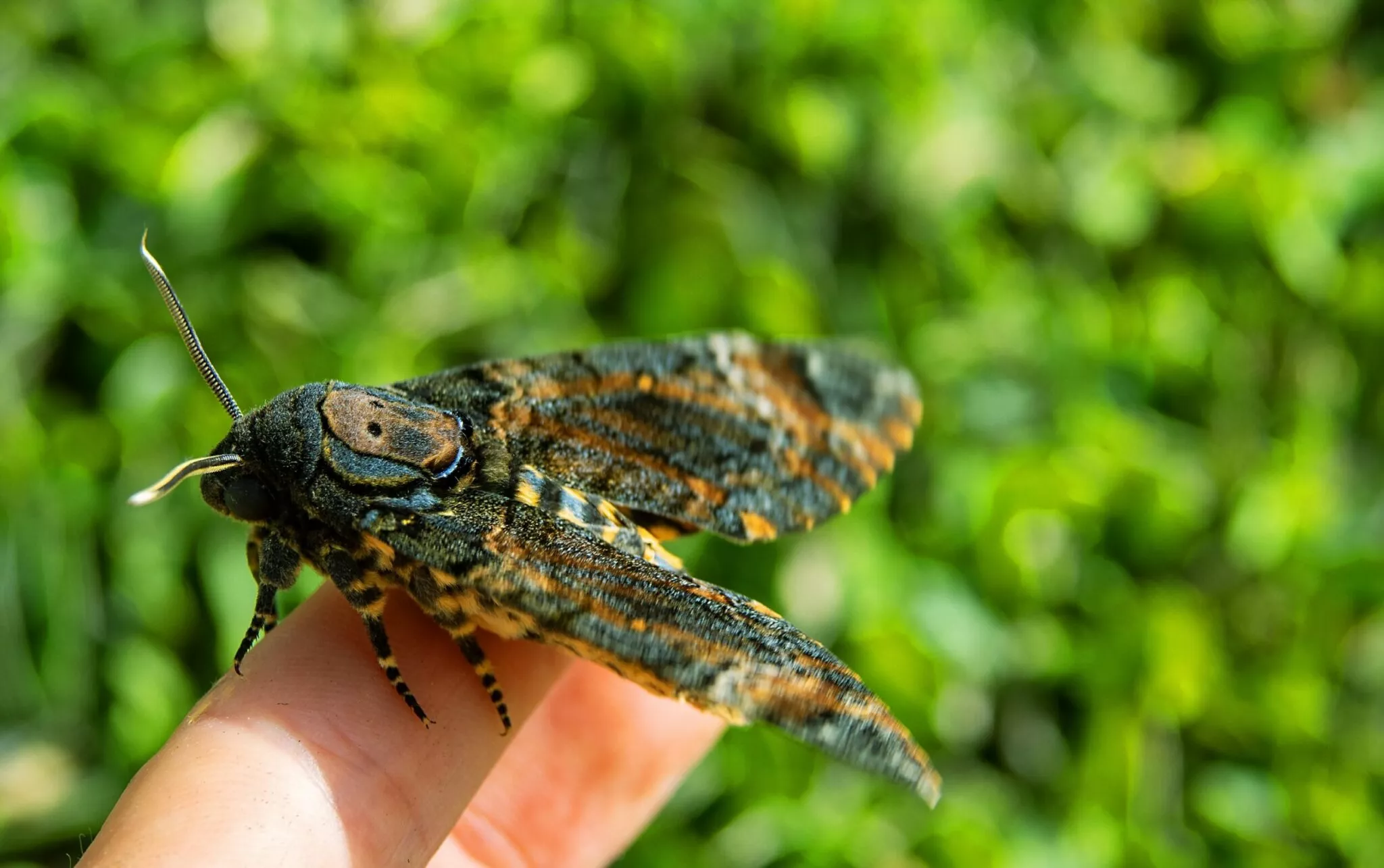In the collective unconscious, September 1999 will likely forever be associated with the devastating Athens earthquake. The 5.9-magnitude tremor centered in Parnitha, which occurred at 2:56 PM on the warm afternoon of September 7, claimed the lives of 145 citizens, caused damages in the Attica region estimated at 3 billion euros, and was recorded as one of the greatest natural disasters to ever strike the country. Even today, a quarter of a century later, those who experienced that day in Attica can vividly recall where they were, what they were doing, and how they reacted.
Sara Karali has even more reason to remember every single detail of this earth-shattering event. In just over a month, she was going to become a mother for the first time. However, some complications during her pregnancy had confined her to a hospital bed in Athens. Karali, a former long jump athlete, will never forget the moment of the earthquake, but especially the fact that seconds after the terrifying tremor, everyone fled in panic. In an instant, she found herself alone in the hospital ward, surrounded by an eerie silence. In the end, everything turned out well: 44 days later, on October 20, Sara Karali gave birth to two healthy babies, Angeliki and Emmanouil Karalis, the one we all know, admire, and refer to today as “Flying Manolo.”
The Karalis family is very close-knit.
He made history
The 24-year-old Manolo often jokes, half seriously, that he’s fearless because even before he saw the light of day, he experienced something so earth-shattering in his mother’s womb. However, the truth is that the bronze medalist of Paris, the national record holder, and one of the 25 elite pole vaulters in history to have cleared the 6-meter barrier, was not born fearless or with a built-in disregard for danger in his DNA. He became strong by passing through his share of trials and tribulations, not just once or twice, but repeatedly.
A few days ago, at the Diamond League competition in Silesia, Poland, the athlete who has rightfully earned the title of the greatest Greek pole vaulter of all time proved that nothing is too difficult, too unattainable, or too high for him in this season filled with frantic competition and a rich harvest of accolades.
On his third attempt at his fifth jump, Karalis became the first Greek pole vaulter to surpass the so-called psychological barrier of 6 meters, improving the national record, which he himself had set just last June at the Panhellenic Championship in Volos, by 7 centimeters.
Legendary Emmanouil Karalis became the first Greek to break the 6-meter barrier.
The bronze medal he won on August 7, cheered on by 80,000 spectators at Stade de France, not only didn’t make him complacent, but it seems to have given him wings to pursue his personal motto, “Fly, Manolo, Fly,” even more fervently.
Flying Manolo with his twin sister Angeliki
A Competitor at Heart
There are athletes who excel in practice but are overwhelmed by anxiety and stress during the most crucial moment — in competition — and fail to cash in on their efforts. There are athletes who, after achieving a great feat, shed their athletic demeanor and adopt a diva-like attitude, boasting and triumphalizing. There are also athletes who, in the very moment of their greatest competitive effort, close their eyes — especially in pole vaulting, where they naturally soar meters above the ground.
Emmanouil Karalis does not belong to any of these categories. He considers himself a competitor rather than a practice athlete — you can see it in his eyes, his movements, and the childlike enthusiasm he exudes as he enjoys competing. He remains humble at heart even when we all (and rightly so) honor him as a star, and he always keeps his eyes open every time he attempts to clear the bar. It’s not just that he wants to see what he’s doing or live every moment to the fullest, but mainly his firm belief that every jump is just another lesson he needs to be fully present for with all his senses. This belief has led him to this approach. He maintains the same clear and direct gaze when looking in the mirror. Karalis has never been afraid to face himself in his brightest moments but especially in his darkest ones.
Sara Karali with Emmanouil and Angeliki as babies
Through Trials
He may be enjoying his best season yet this year, but it was only two years ago when, through a social media post, he announced that all he needed was a break from track and field. In August 2022, a year after finishing fourth at the Tokyo Olympics, where he made history not only with his athletic success but also with his decision to hold up a handwritten “Thank you Mom + Dad” sign at the end of the competition as a token of gratitude to his parents, Sara and Harris, Manolo shocked many with his decision to step away from competitive action.
In that post, he spoke about his injury during the winter season and the toll it had taken on both his body and soul. He revealed that, for the first time in his life, he had suffered from panic attacks and announced that he was ending his season early to focus on his mental health. Some were quick to write him off, but in reality, Karalis’ brave decision highlighted in the most emphatic way that while everyone may think of champions as invincible and unyielding, they forget that they are simply human.
Let’s not forget that it’s only in recent years that we’ve begun to openly discuss the issue of athletes’ mental health and well-being, which for decades remained taboo. Two months after that public confession, Karalis announced that he would continue competing under the guidance of a new coach — his father, former decathlete Harris Karalis, or the man we now know as the architect of Manolo’s soaring success. Karalis himself has admitted that if his father had not taken over as head of his coaching team at that time, he likely would have ended his relationship with the sport.
Harris Karalis and Sara Mulunga-Karali: The grocer’s son and the priest’s daughter from Uganda met in Pyrgos, Ilia.
The Decathlete Father
Harris Karalis, whose athletic roots can be found in gymnastics, is the person who introduced his son to track and field. By the age of 12, Emmanouil, who as a child was always climbing to the highest points he could find, had tried swimming, taekwondo, basketball, and football. Just before his teenage years, he stepped onto the track for the first time, with the initial plan being to follow in his father’s footsteps as a decathlete. However, from the moment he first held the pole in his hands, he knew he had found his calling. As for his father’s unfulfilled dream? That was largely realized by his twin sister Angeliki, who eventually took up heptathlon and years later graduated from the Physical Education and Sport Science Department in Trikala.
Emmanouil’s rise in what seems to be his destined sport was meteoric. Four years after his baptism in pole vaulting, at the age of 16, he broke the world indoor record in the U18 category, and two years later, he did it again, this time in the U20 category — both times at the Peace and Friendship Stadium. By then, he had entered the radar of the global competitive community.
The Immigrant Mother
His father may have been responsible for his training over the past two years, but it is his mother who, as Emmanouil says, never lost faith in him. Even when Manolo began to doubt himself. Sara Mulunga-Karali was a long jump athlete herself, but she had to give up her dream of an athletic career due to an injury — her best performance was 5.09 meters in 1981.
She met Harris Karalis in Pyrgos, Ilia, at the dirt stadium where they trained. But what was a young woman from Uganda doing in rural Greece? Mulunga had migrated to Greece with her father, Emmanuel, a priest, and her sister. With the help of the then Metropolitan of Ilia, Athanasios, the two sisters secured a place in the local girls’ boarding school and attended the local high school. After finishing school, Sara left for studies in the United States, but the geographical distance did nothing to diminish the decathlete’s love for her. In fact, Harris went to America, found her, and asked her to spend their lives together.
She accepted, and so, upon returning to Greece, the grocer’s son and the priest’s daughter got married and created a close-knit and loving family that enjoys the easy moments and faces life’s challenges as one.
“We cried on the bench”
As Afro-Greeks, Manolo and his twin sister Angeliki did not escape the curious glances of other children, school bullying, and racist behavior. During their school years in Patras, where the family lived, the two siblings were targeted many times — even with acts of physical violence — because of the color of their skin. “When I was in elementary school with my sister, a group of children would come and tell us, ‘Go back to your country,’ and push us. My sister and I would go sit on a bench, hug each other, and cry.” Of course, no one from the family tried to retaliate or respond with hatred. “My father was also a victim of bullying, and so when we came home, he would say, ‘You will return to school with your heads held high,’ and we did. My parents always taught us that the only thing that can defeat hatred is kindness.”
Karalis remembers the day when, during the 2019 World Championships in Doha, a parent from another competing country asked him to take a photo with their child. “It was one of the most beautiful moments in my life. That’s when I realized I could inspire people to keep dreaming.”
Two years before that, in May 2019, Manolo had stood up to racism in the most public way. He filed a complaint against the national coach, Dimitris Kytea, accusing him of repeatedly using racist expressions. He had even urged other athletes, through public posts on social media, not to take photos with “the black guy” and even spread rumors about Karalis practicing voodoo.
The testimonies of those who experienced the racist behavior of Kytea were enough for the Greek Federation to find the coach guilty, but the penalty imposed on him was just a 3-month suspension from all national events. The leniency shown to him by the judicial committee naturally shocked and angered Karalis, who, with the support of his family, closed the chapter of this personal injury and focused on his sporting career.
“I will continue doing what I do best: jumping higher and higher, winning competitions, and always fighting with passion and respect for the sport I love so much. Racism, after all, is not a Greek phenomenon; it’s a global issue, and I’m proud to be part of the solution.”
A Brighter Future
As well as being the embodiment of high-flying athletics, Karalis is also an exemplar of an athletic lifestyle and ethos. His kindness, humility, and modesty are so widely known that many members of the Greek athletic community cite them as reasons why they love the athlete even more than his successes.
When the Greek Olympians returned from Tokyo in the summer of 2021, Karalis posted a message of praise, celebrating the success of all the athletes and underscoring that no one should ever take their achievements for granted. He emphasized that everyone who competed in those Games was a winner.
In one of his rare recent interviews, Karalis explained his rationale for choosing to recognize the efforts of all the Greek Olympians instead of focusing on his individual success: “At that moment, I didn’t need the spotlight on me. I wanted to raise everyone else up.”
Manolo Karalis continues to fly high, not just on the track but also in life, with his eyes always open.
Ask me anything
Explore related questions





